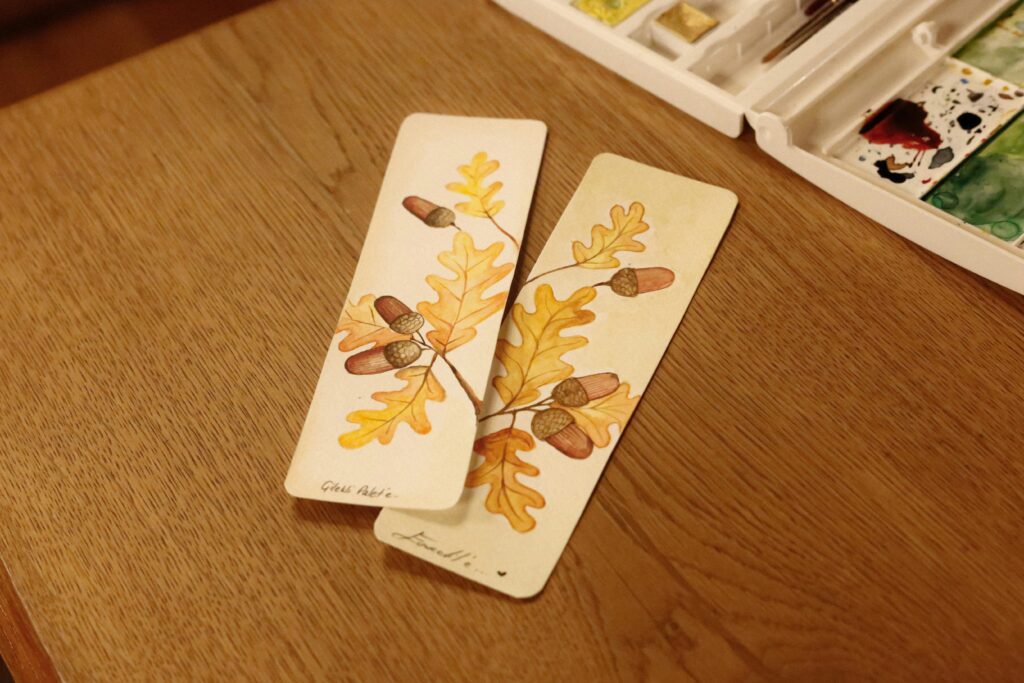How To Make Your Art Career Last Long

Some careers burn bright and fade fast, while others last decade after decade. Talent, luck, and connections matter, of course, but there’s something quieter that makes the difference: emotional strategy. Knowing how to navigate your feelings, protect your energy, and respond thoughtfully to challenges shapes not just your work, but your entire career.
Emotions rarely get framed as professional tools, yet they affect every decision, every interaction, and every reputation you build over time. People who last in their fields notice patterns in their reactions, understand what drains them, and develop habits that sustain focus and creativity. It’s about working with yourself instead of fighting against yourself, and creating a rhythm that keeps you moving forward.
Most people underestimate the power of emotional intelligence. It shows up in subtle ways, how you handle criticism, manage stress, and maintain motivation, but it compounds over the years. Those who learn to read their own emotional signals turn setbacks into lessons, conflicts into clarity, and ordinary days into steady progress.
Longevity in any career comes from more than producing work. It comes from knowing what drives you, what exhausts you, and how to move through highs and lows without burning out. Over time, this awareness separates those who flicker and fade from those who endure and thrive.
By the end of this article, you’ll see emotional strategy as something practical, not abstract. These are approaches you can start using today to keep producing, growing, and staying relevant without losing your sense of self.

Stop Ignoring Your Feelings , They’re Actually Your Career Compass
Most people treat emotions like distractions, but they are signals, loud and clear. They tell you when a project isn’t right, when a collaboration drains energy, or when a decision needs a pause. Listening to them isn’t weakness; it’s strategic. Emotions guide decisions if you notice them early and act thoughtfully. Ignoring them is like ignoring a warning light on your car. It might be fine for now, but the damage adds up fast.
Start by naming your feelings. Stress, excitement, frustration, pride, label it. That simple act transforms vague unease into useful insight. Once you can name it, you can use it. You’re no longer reacting blindly, you’re responding with intention. This small habit quietly strengthens every career decision you make.
Notice patterns in your emotional responses across tasks. Some meetings energize you, others drain you. Some tasks make time fly, others make it drag. Those patterns are golden information about where to invest energy and where to set boundaries. Paying attention to them keeps your energy and motivation intact.
Emotional awareness also sharpens communication. You can express needs or set limits clearly without being defensive or passive. People respect professionals who understand themselves and can articulate their boundaries calmly. Emotional strategy becomes your quiet advantage in relationships and collaborations.
The more consistent you are in observing your feelings, the fewer impulsive reactions you make. Acting from awareness keeps mistakes and conflicts smaller and more manageable. Your reputation, decision-making, and stamina benefit. Emotional strategy isn’t flashy, but it compounds quietly over years.
Eventually, you start seeing feelings as guides rather than obstacles. This awareness transforms how you operate under pressure and navigate challenges. Careers last longer when professionals respond thoughtfully rather than react unconsciously. You’re building endurance one emotional check-in at a time.
Learn How to Say No Without Feeling Guilty
Guilt sneaks in quietly when you say no, but it doesn’t have to control you. Saying yes to everything may feel polite, but it fragments focus, drains energy, and silently eats away at creativity. Professionals who thrive long-term know that saying no is not rejection, it’s strategy. Protecting your bandwidth ensures you can say yes to the things that truly matter.
Start with small things. Decline minor requests or tasks that don’t align with your priorities. Notice the relief when your schedule opens up. That sense of control feels empowering and helps you realize that time and energy are finite resources. Each intentional no builds strength and confidence.
Saying no also improves clarity. You communicate boundaries without being defensive or passive, which earns respect. People notice when someone manages commitments intentionally. Professional relationships get smoother when expectations are clear from the start.
Guilt is usually louder in your head than in reality. When you decline, remind yourself that your energy is limited and protecting it is essential. You’re not shirking responsibility, you’re ensuring you can fully invest in what truly matters. Boundaries are professional, not personal.
Over time, saying no makes your yes more meaningful. You only commit to projects, collaborations, and opportunities that align with your goals and excite you. Focused energy produces higher-quality work, and creativity becomes sharper because it’s not scattered across everything.
Eventually, saying no becomes instinctive. You stop overextending and avoid resentment. Your emotional energy is preserved, your motivation stays strong, and your work improves. Saying no is a tool for sustainability and career longevity, not a flaw.
Manage Your Emotional Energy Like a Resource
Emotional energy is currency, and spending it wisely extends careers. Every meeting, project, or relationship either drains or fuels you. Professionals who understand this allocate effort strategically instead of reacting to every demand. Conserving energy allows better focus, sharper decisions, and more creative output.
Start tracking what drains or energizes you. Which collaborations leave you buzzing with inspiration, and which leave you depleted? Over weeks, patterns emerge that help you see where to invest your energy for maximum impact. These small observations become your roadmap.
Prioritization is critical. Focus on work that has the highest impact, the projects that spark creativity or align with goals. Busywork, distractions, and low-value commitments consume energy without returns. Professionals who manage energy wisely multiply effectiveness over time.
Replenishing energy is essential. Short walks, journaling, quiet reflection, or hobbies unrelated to work restore focus. Recovery is not optional, it’s a career investment. Regular restoration prevents emotional overdraft and keeps your mind ready for challenges.
Avoid reactive energy spending. Impulsive decisions, overreactions, or emotional responses drain stamina and harm long-term goals. Professionals who monitor energy allocation approach situations strategically rather than emotionally. This skill compounds over years.
Eventually, managing energy becomes second nature. You intuitively know when to push, pause, or redirect effort. Energy management is quiet but powerful, it preserves focus, creativity, and resilience, extending career longevity without dramatic effort.

Use Reflection as Your Career GPS
Reflection is underrated but essential. Without it, mistakes repeat, emotional patterns go unnoticed, and growth stalls. Professionals who last turn reflection into a practice, reviewing wins, setbacks, and emotional responses. Small consistent reflection transforms experience into guidance.
Start with weekly reflection sessions. Ask: What drained me? What energized me? How could I respond differently next time? Writing these down makes patterns visible and prevents emotional blind spots from becoming habits.
Reflection uncovers patterns in work, energy, and collaboration. You notice what triggers stress, what motivates, and which relationships support growth. This awareness informs decisions, helping you prioritize tasks and partnerships that strengthen your career.
Relationships also benefit. You learn who supports your focus and who saps it. Reflection highlights collaborators, mentors, or clients that deserve more attention and those to limit interaction with, protecting energy and emotional stability.
Consistent reflection prevents reactive behaviors. Professionals who take time to review situations are less likely to burn bridges or make poor decisions. Reflection is a subtle but critical tool that compounds over years.
Eventually, reflection guides instinctive decision-making. You anticipate pitfalls, navigate challenges with perspective, and respond rather than react. Careers endure when reflection is integrated into how you work and manage emotions.
Build Emotional Flexibility , Learn to Bend Without Breaking
Rigidity quietly erodes careers. Flexibility allows adaptation to change, setbacks, and conflicts without losing momentum. Emotional flexibility is a skill that anyone can train, and it protects both performance and energy over decades.
Start small. Notice your initial reaction when plans change or expectations shift. Pause, breathe, and adjust instead of panicking or overreacting. Each small adjustment strengthens your capacity to respond calmly to larger disruptions.
Flexibility doesn’t mean compromising values. It’s about staying centered while adjusting tactics, approaches, or expectations. Professionals who cultivate flexibility respond thoughtfully, not impulsively, giving them an edge in long-term relationships and opportunities.
Flexibility improves collaboration too. Being able to navigate disagreements or unexpected changes calmly strengthens trust and credibility. Emotional adaptability makes teamwork smoother and prevents unnecessary friction.
Over time, flexibility compounds. Careers are rarely linear, and professionals encounter twists, failures, and surprises. Those who bend without breaking sustain momentum, maintain relationships, and continue producing at a high level.
Practicing flexibility protects emotional energy and prevents burnout. It allows you to absorb shocks, maintain composure, and keep moving forward, quietly building resilience that supports long-term success.
Create Recovery Rituals That Actually Stick
Recovery is essential, yet often overlooked. Professionals who skip downtime burn out quickly, even if they are talented or disciplined. Strategic recovery maintains clarity, focus, and emotional resilience, ensuring sustained performance.
Identify rituals that genuinely restore you, walking, reading, journaling, meditation, or hobbies unrelated to work. Consistency is key; small, daily recovery routines have compounding effects over time.
Protect recovery time as you would a critical meeting. Boundaries make these rituals stick. Recovery is not indulgent; it’s necessary. Scheduling time ensures your energy is preserved, preventing burnout from creeping in unnoticed.
Recovery also strengthens emotional regulation. A rested mind reacts less impulsively, communicates better, and makes higher-quality decisions. Simple routines prevent mistakes and unnecessary conflicts.
Notice how consistent recovery prevents cumulative stress. Professionals who make downtime habitual sustain focus, creativity, and energy. Over months and years, the difference is massive.
When recovery is non-negotiable, career longevity becomes inevitable. Energy remains high, decisions remain sharp, and resilience builds naturally. Recovery transforms emotional strategy into a concrete, sustainable practice.
Track Your Wins , Big and Small
It’s easy to forget progress when day-to-day work feels repetitive or slow. Tracking wins creates a visual record of achievement and helps maintain confidence. Every completed project, positive feedback, or small breakthrough counts. Recognition doesn’t need to come from outside; documenting it yourself reinforces self-belief.
Start a “win log.” Write down tasks completed, milestones reached, or even moments when you handled a tough situation well. Over time, this log becomes proof of capability and momentum, especially when challenges make you doubt yourself.
Celebrate small victories too. Finishing a tricky project, sending a proposal, or sticking with a creative routine are wins that feed motivation. Consistent acknowledgment of effort reinforces a growth mindset and encourages persistence.
This practice also highlights patterns of success. You start noticing what strategies, habits, or mindsets consistently lead to positive outcomes. These insights inform smarter decisions and strengthen your approach to work.
Sharing wins with trusted peers or mentors can amplify impact. It helps create accountability and inspires others, while reinforcing your own sense of achievement. Wins become part of a supportive ecosystem rather than isolated moments.
Eventually, tracking wins shifts focus from fear of failure to awareness of progress. You stop fixating on setbacks because evidence of growth is always visible. This simple habit strengthens confidence, motivation, and career longevity.
Know Your Stress Triggers And Neutralize Them
Stress is inevitable, but unmanaged stress sabotages creativity and professional stamina. Longevity comes from understanding what triggers it and taking proactive steps to neutralize its effects. Awareness alone reduces overwhelm and keeps you grounded.
Begin by observing patterns. Which tasks, deadlines, or relationships consistently raise tension? Which interactions leave you drained? Tracking triggers is like mapping a minefield, once you know where the pressure points are, you can navigate around them more safely.
Develop early interventions. Short breaks, deep breathing, micro-meditation, or a walk can stop stress from escalating. Catching it early prevents burnout and preserves clarity of thought. It’s a small investment with huge returns.
Shift perspective on unavoidable stress. Reframe challenges as opportunities to strengthen resilience or improve processes. Stress becomes informative rather than debilitating, giving you a practical lens for decision-making and growth.
Communicate boundaries and needs clearly when stressors involve other people. Professionals who assert themselves constructively reduce conflict and miscommunication, protecting emotional energy while preserving relationships.
Over time, managing stress triggers becomes intuitive. You anticipate challenging scenarios and act before tension builds. This proactive approach keeps creativity flowing, energy high, and career stamina intact, quietly sustaining longevity.

Use Emotional Check-ins to Stay Aligned
Regular emotional check-ins are like maintenance for your professional engine. Without them, unnoticed frustration, resentment, or fatigue accumulates and eventually affects output. Consistent self-assessment ensures you stay aligned with goals and values.
Set aside short daily or weekly moments to ask: How am I feeling? What’s draining or energizing me? What adjustments are needed? Writing answers down keeps patterns visible and actionable.
These check-ins help identify hidden issues before they become big problems. Recognizing subtle discontent, burnout, or misalignment allows you to make small course corrections rather than crisis interventions.
Check-ins also improve decision-making. Knowing your emotional state ensures choices are made from clarity rather than impulsivity. You stay intentional, which builds credibility, professionalism, and creative consistency.
Sharing insights from check-ins with mentors or collaborators can help clarify expectations and improve working dynamics. Emotional transparency, done selectively, strengthens relationships without overexposing vulnerability.
Ultimately, consistent emotional check-ins build a habit of self-awareness that protects energy, strengthens focus, and supports long-term career health. You operate strategically instead of reactively, and longevity follows naturally.
Don’t Let Burnout Creep In. Spot It Early
Burnout doesn’t usually announce itself. It sneaks in gradually, often disguised as fatigue, irritability, or cynicism. Professionals who last notice these early signs and take action before it escalates. Early intervention preserves creativity and emotional stamina.
Recognize patterns in your energy levels and mood. Persistent fatigue, dread toward work, or irritability with collaborators are warning signs. Treat them as signals, not weaknesses. Awareness is the first defense against long-term burnout.
Develop a plan for moments of low energy. Short breaks, a day off, or adjusting deadlines can prevent temporary stress from snowballing into serious burnout. Small interventions often restore balance before problems multiply.
Delegate or reprioritize when necessary. Professionals who recognize limits and shift responsibilities strategically maintain output without sacrificing well-being. Flexibility is crucial to sustainable success.
Self-care is not optional, it’s professional maintenance. Sleep, nutrition, exercise, and downtime protect both mind and body. Consistently neglecting these accelerates burnout and shortens career longevity.
By catching burnout early, you maintain clarity, creativity, and focus. Longevity is less about talent and more about preserving energy and passion over decades. Professionals who spot signs early thrive where others fade.
Build Support Systems That Actually Support You
Longevity isn’t built in isolation. Emotional strategy thrives when you have a network that nurtures, challenges, and protects your growth. Support systems reduce pressure, provide feedback, and offer perspective during stressful times.
Choose connections thoughtfully. Mentors, peers, or communities that understand your field and challenges are invaluable. Their guidance, empathy, and constructive criticism keep you grounded while pushing growth.
A strong support system also provides emotional backup. When setbacks occur, having someone to share frustrations with prevents internalization and stress accumulation. Feeling seen and understood stabilizes energy.
Professional collaboration benefits too. Trusted allies help with problem-solving, brainstorming, or resource sharing, which extends capacity and resilience. Networks amplify your impact without draining your energy.
Invest time in reciprocity. Offer support, feedback, or encouragement in return. Healthy networks thrive on mutual respect and collaboration, making relationships more sustainable and rewarding over the long term.
Over time, robust support systems buffer challenges, prevent isolation, and enhance emotional strategy. Careers flourish when professionals surround themselves with people who strengthen rather than drain them.

Make Emotional Strategy a Daily Habit
Strategy works best when it’s habitual. Daily practices in emotional awareness, recovery, reflection, and energy management compound into long-term stability and resilience. Longevity comes from consistency, not occasional effort.
Start small. Five minutes of reflection, a short emotional check-in, or a recovery ritual daily lays the foundation. Over months, these habits embed into your routine and become instinctive.
Consistency builds self-trust. You begin to anticipate stress, energy dips, and emotional reactions, allowing proactive responses instead of reactive ones. Habits create predictability in an unpredictable creative life.
Daily emotional strategy also sharpens decision-making. With awareness baked into routine, choices are aligned with values and energy levels, which improves focus, collaboration, and outcomes.
Routine prevents burnout. When emotional management is habitual, you avoid depletion, maintain creativity, and preserve motivation. Careers extend when energy and focus are managed daily.
Ultimately, emotional strategy becomes second nature. You navigate challenges gracefully, sustain energy, and cultivate resilience that lasts decades. Daily commitment turns insight into enduring professional longevity.
